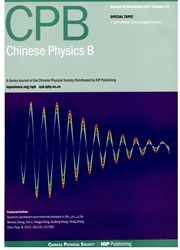

 中文摘要:
中文摘要:
We give an analytic quantitative relation between Hardy’s non-locality and Bell operator. We find that Hardy’s non-locality is a sufficient condition for the violation of Bell inequality, the upper bound of Hardy’s non-locality allowed by information causality just corresponds to Tsirelson bound of Bell inequality and the upper bound of Hardy’s non-locality allowed by the principle of no-signaling just corresponds to the algebraic maximum of Bell operator. Then we study the Cabello’s argument of Hardy’s non-locality (a generalization of Hardy’s argument) and find a similar relation between it and violation of Bell inequality. Finally, we give a simple derivation of the bound of Hardy’s non-locality under the constraint of information causality with the aid of the above derived relation between Hardy’s non-locality and Bell operator.
 英文摘要:
英文摘要:
We give an analytic quantitative relation between Hardy's non-locality and Bell operator. We find that Hardy's non-locality is a sufficient condition for the violation of Bell inequality, the upper bound of Hardy's non-locality allowed by information causality just corresponds to Tsirelson bound of Bell inequality and the upper bound of Hardy's non- locality allowed by the principle of no-signaling just corresponds to the algebraic maximum of Bell operator. Then we study the CabeUo's argument of Hardy's non-locality (a generalization of Hardy's argument) and find a similar relation between it and violation of Bell inequality. Finally, we give a simple derivation of the bound of Hardy's non-locality under the constraint of information causality with the aid of the above derived relation between Hardy's non-locality and Bell operator.
 同期刊论文项目
同期刊论文项目
 同项目期刊论文
同项目期刊论文
 期刊信息
期刊信息
